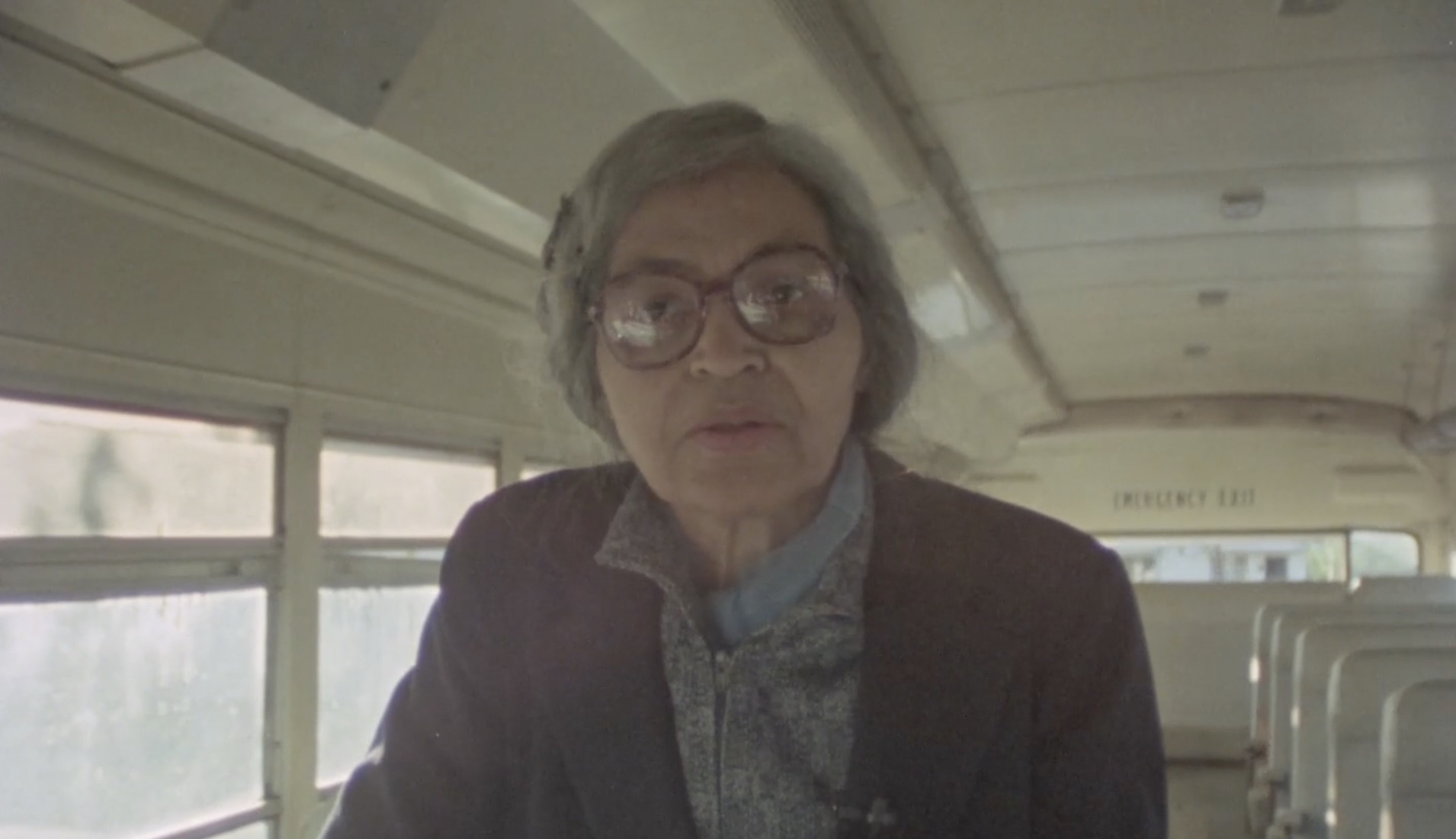
New Rosa Parks Documentary Uses Rare Footage from the Jack Willis Collection
Johanna Hamilton and Yoruba Richen’s new documentary The Rebellious Life of Mrs. Rosa Parks is an adaptation of Jeanne Theoharis’s biography of the same name. Executive produced by Soledad O’Brien, and streaming now on Peacock, the film shares the mission of Theoharis’s book: to reclaim the legacy of Parks from the overly simplistic story taught in schools and repeated by politicians looking to defang the transformative potential of her example. Instead of just being a polite but tired middle-aged woman who refused to move to the back of the bus, Parks was a lifelong and dedicated radical fighting for Black liberation and women’s rights.
The documentary interweaves new interviews with activists and historians alongside an immense wealth of archival photographs and footage. Included in that treasure trove are three interviews from the film and media collections of the Washington University Libraries. Two were originally used in the first series of the defining documentary on the Civil Rights Movement, Eyes on the Prize, including a 1979 interview with Jo Ann Robinson and a 1985 conversation with Parks. (You can watch those and the other reconstructed full-length interviews from the initial Eyes series through the University Libraries Digital Library.)
The third, an interview with Parks from December 1, 1980, has never been available until now. The recording comes from the Jack Willis Collection. Willis (1934-2022) was an important innovator in the development of American public media and a director of documentary films, including 1963’s The Streets of Greenwood and Lay My Burden Down (1966), where he went to Selma a year after the march to see what had and had not changed, since the passage of the Voting Rights Act.
In the late 1970s, and at the same exact time that Henry Hampton and his Blackside, Inc. production company began working on what eventually turned into Eyes on the Prize, Willis began pre-production on a documentary on the Civil Rights Movement. Willis worked with former SNCC activist Jean Wiley on the never-named documentary and together the two of them filmed interviews with thirty-eight persons associated with the struggle for racial equality, either as activists or representatives of the white power structure. Unfortunately, the documentary was never completed.
Thankfully, the interviews exist in cans of analog film reels and open-reel magnetic media in the Libraries’ environmentally controlled vault. (Great job, previous and current Libraries employees!) One can watch the full-length interview with Parks (see below). A transcript of the interview is also available as a PDF.
In the twenty-minute interview, Parks primarily talks about her experience during the Montgomery Bus Boycott. She’s a cagey interviewee. Perhaps she really was humble, or she was uncomfortable in front of a camera, or she didn’t trust the intentions of the white interlocutor. But in so doing, she ends up shaping the nature of the interview more than the interviewer. She says a great deal more with the little she does say—and her wonderful and critical smirk—than if she was more effusive. She’s honest in describing the scale of white racism towards African Americans as existing beyond the South and continuing decades after the Voting Rights Act. She’s absolutely resolute in her commitment to the freedom of oppressed peoples.
The only other interviews that have been digitized from Willis’s and Wiley’s unfinished film were conducted with the Civil Rights activists Ella Baker and Gwen Patton though those are not up online yet. However, the Film & Media Archive has released a recording by Willis of the 25th-anniversary celebration of the Montgomery Bus Boycott, featuring a speech from Parks, which can be viewed below.
